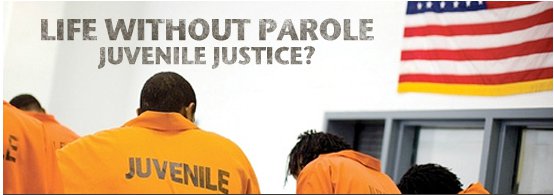
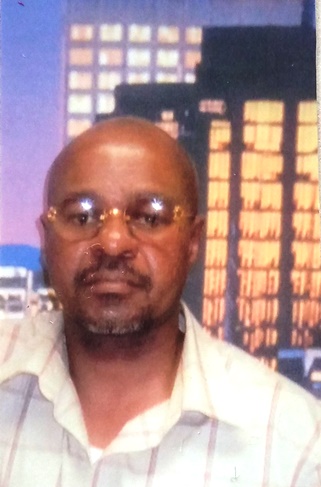
Ricardo Ferrell, VOD staff writer
Editor’s note: The two Michigan juvenile lifers profiled below are among the 200 prisoners for whom county prosecutors recommended life without parole during their re-sentencings under U.S. Supreme Court rulings in Miller v. Alabama and Montgomery v. Alabama. That is the highest number of in any state in the U.S.
By Ricardo Ferrell
January 22, 2019
Although some former prosecutors believe juvenile offenders should be allowed to prove rehabilitation, many current ones are not and have relentlessly pursued seeking the life without parole sentence again during resentencing hearings, despite many of the juveniles being able to show their rehabilitation.
In an article published in the Lansing State Journal, Peter Deegan and John O’Hair, former county prosecutors and circuit court judges, were quoted, “It makes sense that if a person who received an unconstitutional sentence as a teen can show they’ve been rehabilitated, they should have a chance at parole. As former prosecutors and judges ourselves, it’s hard to imagine that prosecutors would blithely seek to resentence more than a handful to life when the Supreme Court said those sentences were impermissible except for the “[rare juvenile offender who exhibits such irretrievable depravity that rehabilitation is impossible.]”
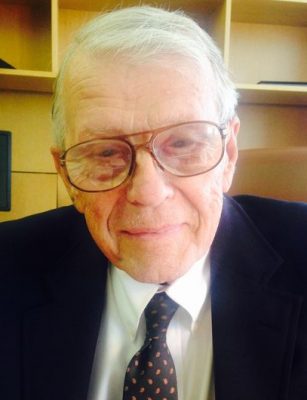
Former Prosecutor John O’Hair
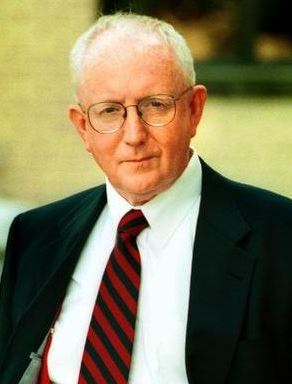
Former prosecutor Peter Deegan
Deegan and O’Hair were once presidents of the Prosecuting Attorneys Association of Michigan.
Juvenile Lifers Brian Grandion and John Loepke both have demonstrated for several years, even prior to the Miller v. Alabama ruling, their rehabilitations beyond dispute.
Brian Grandion, 40, sentenced at 17 years-old to life without parole out of Oakland County, is an unquestionably rehabilitated case. He received his GED with an average score of 48. He (Grandion) has worked as Classification Clerk for nearly 5 years. His current supervisor, J. Houck, Classification Director, states, “… He continues to ensure the Classification Office runs smoothly. Grandion is an asset to myself and the Classification Office.”
He successfully completed Grand Valley State University’s Inside Out Prison Exchange Program in the fall of 2015. A support letter written by Prof. Jackie Martin, Criminologist at GVSU stated, “Mr. Grandion did very well earning an A for the semester; his papers were both critical and introspective. It was clear that he dedicated more time than the average student to his assignments each week. In addition, he contributed frequently to discussion and was in general a pleasure to have in class. I very much hope that he will continue his higher education upon release should he be given the opportunity; I have no doubt that he would be successful in this endeavor.”
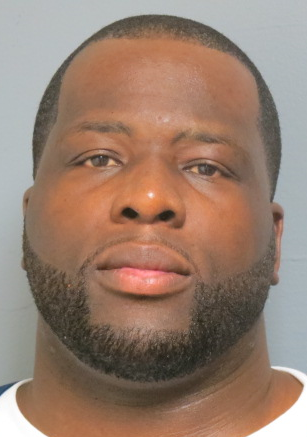
Brian Grandion
Grandion has completed a number of workshops offered by Montcalm Community College according to Prof. Glennes Page. He also completed training in the Prisoner Observation Aide Program, which uses carefully selected prisoners to help prevent at-risk prisoners from engaging in suicidal and/or self-injurious behavior.
He was handpicked by then Deputy Warden Dewayne Burton at the Thumb Correctional Facility to be involved with a mentoring program that got started with the help of former inmate Antonio Espree for youthful offenders. The program paired an adult prison staff member and a selected adult inmate with small groups of juvenile offenders to challenge the twisted thinking that led them to prison and often keeps them there.
All block reports from corrections officers on AM/PM shifts state Grandion is a good role model to have in the housing unit. He’s completed Thinking for Change, which works on cognitive behavior, with an impressive Discharge Summary Report. He has completed a plethora of self-help programs, which he took the initiative to enroll into without referrals.
Mr. Grandion has a passion for cooking, in 1994, prior to his incarceration he received Certification from Pontiac High School in the Specialized Food Technology Program.
In 2018, he participated in a rare experience with Montcalm Community College, where criminologist Glennes Page selected a handful of prisoners to grade papers of 25 students in her criminology class. He also submitted a paper on his perspective and insight, “When you talk About the Difficulties/Struggles of Incarceration,” which was graded by MCC students as part of the special project.
ARUS T. Marsh, his counselor, acknowledged Grandion’s many accomplishments and achievements, as well as how he conducts himself in the honor unit, where he’s been housed for nearly five years. Mr. Marsh states in part, “His unit/work/program evaluations have consistently shown him to be a hard worker, well behaved, and positive example for his fellow prisoners.”
Since Brian’s arrival into the MDOC he has shown an ability to redeem himself by actively engaging in every available rehabilitative program. He only has a total of four misconducts in his 25 years, all relatively of an non-serious nature, i.e., Out of Place, etc. He’s mentioned by several staff as an example and role model for other prisoners. Brian has worked hard toward his transformation and shown redemptive qualities.
If the question was asked whether or not he has demonstrated and/or proved by way of his actions and continuous involvement & participation in programs to be rehabilitated? I would lend an unequivocal yes. Grandion has a strong and supportive network of people willing and able to assist with his smooth reintegration back into society. There is an employment opportunity awaiting him and a suitable home placement.
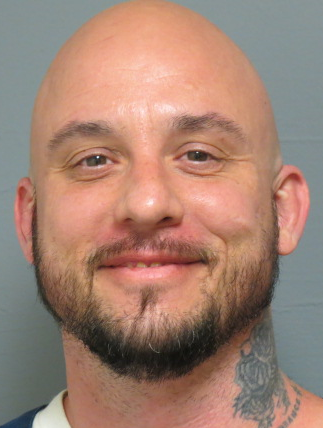
John Loepke
John Loepke, 45, sentenced at 17 years-old to life without parole, out of Calhoun County, is another rehabilitated case. Shortly after coming to prison he successfully completed his GED in April 1993, with an average score of 52. Completed all vocational counseling requirements in Building Trades and received Certification in Custodial Maintenance Technology. All work evaluations from job assignments, photographer, store clerk, laundry and VPP tutor/peer mentor all yielded good to excellent. His current work assignment as peer mentor affords John the chance to help many prisoners in the VPP (Violent Prevention Program) utilize alternative cognitive tools in coping with their violent tendencies.
John received a congratulatory letter from former MDOC director William Overton commending him on his hard work and dedication in pursuing the Career Technical Education Program. He received several letters in appreciation in recognition of his participation in the Greyhound Dog Program for his achievement in training, care and love for his Greyhound from former Warden Carol Howes.
He was one of the handlers who had been in the dog program the longest and had proven to be an valuable asset to the dog program. He volunteered with the making of leather key chains, leash and collars so that the profits from the sales could go back into the running of their non-profit animal rescue organization. John, according to the dog program leader was the “go to guy” for new dog handlers that were seeking advice about their greyhounds. Letters in appreciation and gratitude for his participation in the dog program were also written by Warden Bonita Hoffner.
In a 2017 letter of support from former Warden Carol Howes on behalf of Mr. Loepke, she wrote, “John Loepke was one of the first prisoners classified to be a dog handler and he was instrumental in the program’s success. He often acted as a spokesman for the program. He interacted with staff, volunteers, the media, and was even featured in a promotional film by the Greyhound Foundation. I believe the success and expansion of the dog programs in Michigan is entirely due to these first prisoner handlers, including John, who were in the Greyhound Program.”
He is 20 years without a misconduct report, last infraction was in 1998. John is the type of example that fellow prisoners could charter their course toward rehabilitation after. Prof. Jackie Martin of Grand Valley State University wrote in a letter acknowledging John to be one of her better prepared students in the Inside Out Prison Exchange Program.
He’s completed several Core programs, e.g., Thinking for Change; Substance Abuse Phase I; Violence Prevention Program. Mr. Loepke has also successfully completed a range of self-help programming: Cage Your Rage; Montcalm. Community College Workshops; Chance For Life. John was selected in 2014, for the Prisoner Observation Aide Program, which is part of his dual work assignment. He has done well in observing and preventing prisoners from self-harm.
Aside from his numerous participation in programming, John has continuously shown himself to be a role model that other prisoners can aspire to be like, because he’s demonstrated time-after-time his desire to do the right thing inclusive of a changed thought processes, which is geared toward an overall improvement in how he thinks, acts and behaves. Aaron Suganuma, who attributes much of his success to John’s advice, guidance and example during his short incarceration, said John also helped to change his outlook and perspective on life in general.
In his letter of support for John’s release he stated in part, “… I wasn’t used to healthy friendships – and hadn’t even attended family holidays in a few years. Deciding to let myself be friends with John was one of the luckiest chances that I’ve ever taken.
“I was at a crossroads in my life, where I hadn’t liked the life that I had been living but it was easy to dive deeper and deeper into it. Hanging out with John showed me how to survive in prison without getting into drugs, gambling, fights and all the other pitfalls that are the norm there. Further, he hung out with and introduced me to a lot of people who were on a similar path of ‘I used to get in trouble, but I found a different way to live.’
This wasn’t any kind of organized program but a subculture of people simply doing their time and trying to build a healthier community to live in-within the prison.”
He added, “One of the things that John mentioned when he asked me to write this letter is that, as much as he wants to come home, he understands his victim does not have an opportunity to grow and that it is important that her family feel served. He said that he has felt remorseful for many years and he wishes that there was an opportunity for a restorative justice-style dialogue with them.”
“It seems fitting that John has now taken on the role of an aide who spends time with suicidal inmates in order to help them emotionally deescalate,” says Suganuma, who now holds a master’s degree in Social Work with a specialty in mental illness and chemical dependency.
Writer’s final note: the stories of Brian Grandion and John Loepke are indicative of those juvenile lifers who should be afforded an opportunity to prove their rehabilitation. County prosecutors and judges overseeing resentencing hearings in accordance with the Miller ruling, which addresses the unconstitutionally imposed life without parole sentences for 17 year-olds or younger, should be mindful of the fact that many of these juveniles have long ago proved beyond question their rehabilitative status.




